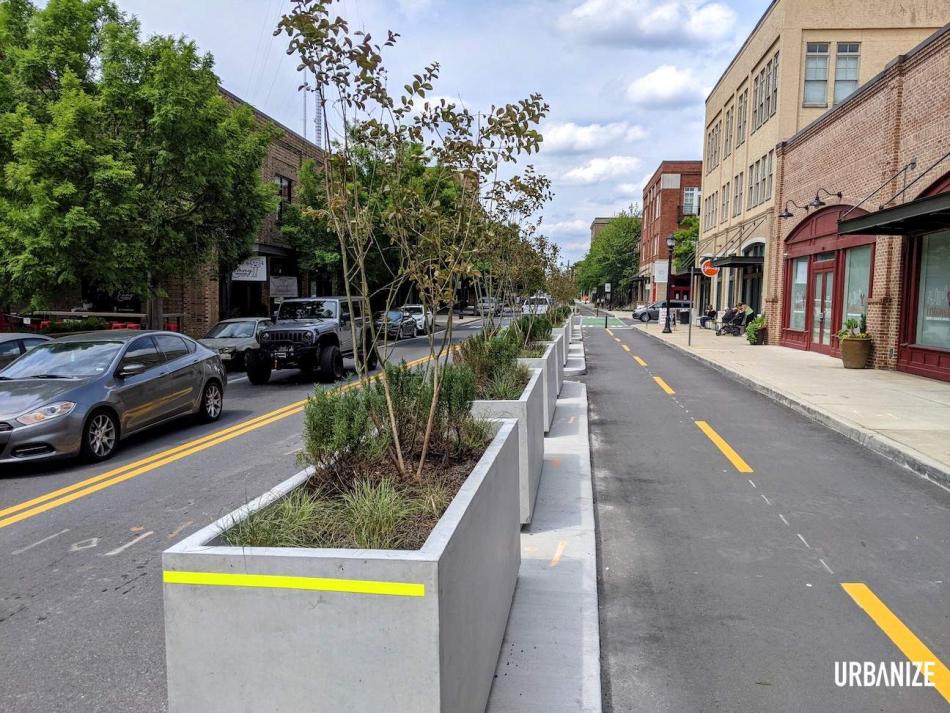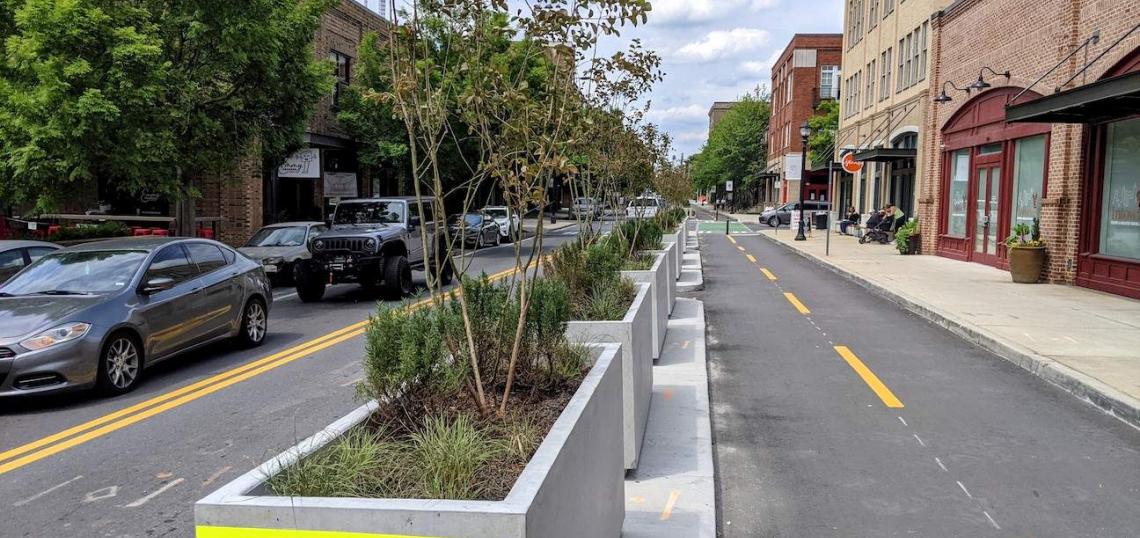In terms of new construction, the Atlanta BeltLine project enjoyed a momentous year, and if available funding is any indication, that progress is set to march forward in 2022.
Thanks to new local, federal, and philanthropic funding sources, BeltLine leaders say the ambitious urban reclamation project has reached a “major funding milestone”—$300 million—that's crucial to finishing the full 22-mile trail corridor ahead of its deadline in nine years.
The BeltLine’s 25-year redevelopment plan—like the project’s dedicated Tax Allocation District, or TOD—is scheduled to end by the final quarter of 2030.
Passed by the Atlanta City Council in March, the new BeltLine Special Service District levied a tax that’s responsible for a large part of the recent windfall.
The tax increase applies to commercial property owners in areas with BeltLine trails both finished and not.
 The BeltLine's new bike lanes and street planters, connecting the Eastside and Southside trail corridors in Glenwood Park, were a win for alternate transportation in 2021. Josh Green/Urbanize Atlanta
The BeltLine's new bike lanes and street planters, connecting the Eastside and Southside trail corridors in Glenwood Park, were a win for alternate transportation in 2021. Josh Green/Urbanize Atlanta
Bonds financed by the SSD tax provided an “immediate cash infusion” when they closed December 9. That's expected to help continue momentum on three new trail segments the BeltLine system opened in 2021, spanning from behind Ansley Mall, to English Avenue, and the Pittsburgh neighborhood south of downtown, officials said today.
Bond funding, in addition to new taxes, is expected to eventually generate $100 million. An estimated $350 million is needed to cover everything from real estate acquisition to security cameras before the full BeltLine is realized.
That funding provides “financial certainty we need to proceed aggressively with trail implementation and allow us to use TAD funds to advance the full BeltLine vision,” said BeltLine CEO Clyde Higgs in an announcement. “[That] includes affordable housing, transit, parks, art, and equitable economic development.”
As part of the $300-million tally, the Atlanta BeltLine Partnership has also secured an $80-million donation from Atlanta philanthropic stalwart The Robert W. Woodruff Foundation. That gift is expected to help fund trail construction and the Legacy Resident Retention Program, an effort to thwart displacement by helping homeowners pay rising property taxes through 2030.
The news follows the announcement last month the BeltLine had landed $16.5 million in federal funding as part of the U.S. Department of Transportation’s RAISE Grant program.
That brought the federal funding commitment to build the BeltLine to about $29 million, with $12 million of that dedicated to finishing Southside and Northeast trail segments, officials said.
The new tax, Woodruff Foundation gift, and federal cash will complement $100 million that Atlanta BeltLine Inc. is dedicating to finishing the 22-mile loop.
• Poll: What's Atlanta's best new park or path of 2021? (Urbanize Atlanta)






